Nursery- Darwin Class
This term we are learning...

The areas of learning and development

In Nursery, children progress within a language rich environment. A language rich environment is about using every available opportunity to use language, to interact, to take turns, to share and to talk so we can empower every child, without exception, to become a successful citizen of the world.
The Early Years Foundation Stage Curriculum comprises seven areas of learning and development. All areas of learning and development are important and are interconnected. Three areas are particularly crucial for igniting children’s curiosity and enthusiasm for learning, and for building their capacity to learn, form relationships and thrive. These three prime areas are:
|
Communication and language |
The number and quality of the conversations they have with adults and peers throughout the day in a language-rich environment is crucial. By commenting on what children are interested in or doing and echoing back what they say with new vocabulary added, practitioners will build children's language effectively. Reading frequently to children, and engaging them actively in stories, non-fiction, rhymes and poems, and then providing them with extensive opportunities to use and embed new words in a range of contexts, will give children the opportunity to thrive. |
|
Physical development |
Physical activity is vital in children’s all-round development, enabling them to pursue happy, healthy and active lives. Gross and fine motor experiences develop incrementally throughout early childhood, starting with sensory explorations and the development of a child’s strength, co-ordination, and positional awareness. |
|
Personal, social and emotional development |
PSED is crucial for children to lead healthy and happy lives and is fundamental to their cognitive development. Underpinning their personal development are the important attachments that shape their social world. Strong, warm and supportive relationships with adults enable children to learn how to understand their own feelings and those of others. |

Partnerships with Parents
We believe children learn best when we work in close partnership with our parents and the wider community. There will be many opportunities to actively participate in your child’s learning through our STEAM showcases and family learning events.
We also use ClassDojo to record and share children's learning and communicate these with parents in real-time. At William Morris we encourage parents to comment and share the learning that happens at home, via ClassDojo. If you are unable to access ClassDojo, please contact your class teacher.
Talking with your child:
Research shows speaking, listening, and understanding are central to every aspect of our lives. A child’s later educational success stems from their ability to express their needs, learn how the world works and communicate with others. These websites show short simple videos, such as when to introduce new vocabulary or how to have engaging back and forth conversation with your child.
|
Improving oral health
Start good oral health habits from the earliest age with your child to prevent tooth decay. Sadly, it is still a serious problem among young children, with tooth extraction being one of the most common procedures for children under 6 in hospital. Watch this video to learn more about ways to start and support your child’s oral health.
Phonics and Early Reading
Reading is a vital life skill, children who have stories and rhymes read to them regularly, will have the opportunity to open the doors to so many different worlds. More importantly, reading will give your child the tools to become independent lifelong learners. We can achieve this together through the Read Write Inc program to help your child learn to read fluently.
Encouraging children to develop a love of books by reading to them daily and by giving them access to a wide range of books at home, at school, local library and through online resources linked below.
Remote Learning:
In the event that remote learning is required, our school is committed to providing a seamless learning experience for all students. Your class teacher will share the necessary documents, videos and links to websites such as Oak National Academy through ClassDojo, ensuring that students have access to high-quality resources and lessons.
Useful Links for Parents:
Numberblocks (Supporting with Maths)

